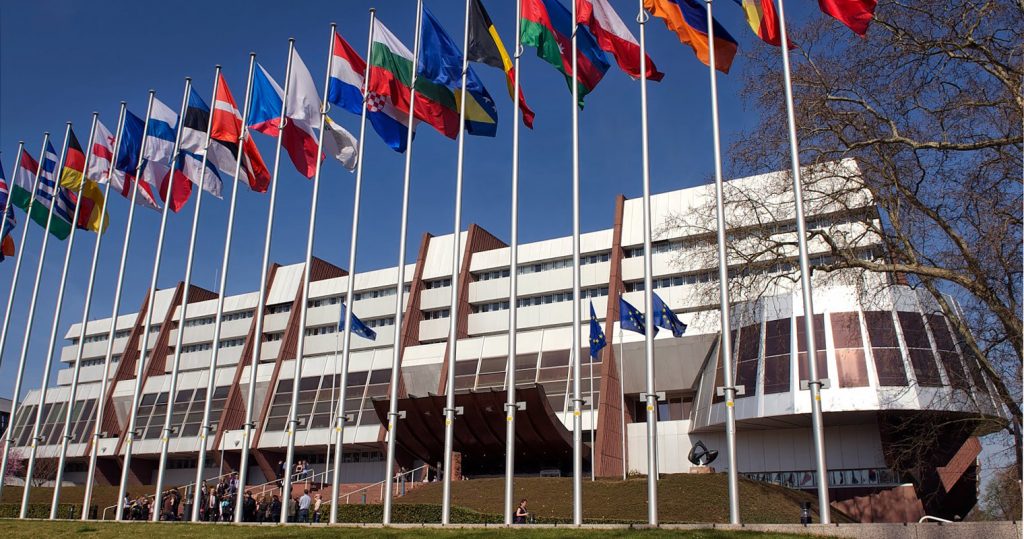The Council of Europe (CoE) issued the Secretary General’s 25th consolidated report on the conflict in Georgia, reviewing the security and human rights situation in the Russian-occupied Abkhazia and Tskhinvali Region/South Ossetia for the period between October 2021 – March 2022.
The document said that during the reporting period concerns remained over the human rights situation in the occupied regions, including over the rights to life, freedom of movement, property, and education in the native language, among others.
In humanitarian efforts, the report said the United Nations High Commissioner for Refugees (UNHCR), the United Nations Development Programme (UNDP) the World Health Organization (WHO), and the International Committee of the Red Cross (ICRC) continued to engage with most vulnerable segments of Abkhaz populace, including by providing financial assistance and foodstuff.
It added that the Georgian Government also maintains its COVID vaccination program, along with material assistance, and informational medical campaigns, for those living in Abkhazia despite limitations in access.
Per the report, the Georgian Government had offered assistance to people living in the South Ossetia/Tskhinvali region but no proposal was accepted by the Kremlin-backed authorities.
International engagement in the Tskhinvali Region also remains limited to the ICRC, the report said. Operating in both occupied regions, the ICRC continued to work to locate the whereabouts of persons unaccounted for during the armed conflicts and support their families, with significant progress made on excavation sites since works began in May 2021, according to the document.
The report further noted that no progress has been made on the issue of internally displaced persons’ return to their homes in the occupied regions.
Situation in Abkhazia
The document reported that illegal “borderization” activities have continued along the Abkhazia dividing line at a “steady pace,” with the “extension of fences, the installation of new surveillance equipment, and increased monitoring around crossing points.”
Illegal detentions have also persisted, with 16 people detained since the beginning of 2021, according to the document.
The CoE reported that Gali Incident Prevention and Response Mechanisms meetings have remained suspended throughout the period of review.
Gaps in documentation continued to adversely affect the ethnic Georgian population in occupied Gali, Ochamchire, and Tkvarcheli districts, the report continued, adding that changes to documentation in January 2022 had further implications on freedoms for people who are trying to cross into the Tbilisi-controlled territory.
Regarding education, the report found that the trend of decreasing hours of native Georgian language taught in schools has continued since the academic year began in September 2021.
The CoE report said that an hour each is devoted to the Georgian language and literature per week at schools of the ethnic Georgian majority Gali district, with courses mainly taught in Russian. It also recalled that receiving education in the Georgian language has been banned in both schools and kindergartens in the district.
Situation in Tskhinvali Region/Ossetia
The report noted that Tbilisi and the Georgian Public Defender’s Office raised concerns about ongoing “borderization” and the impact of the lengthy closure of crossing points.
The closure further impacts the access of Tskhinvali residents to medical facilities in Tbilisi-controlled territory, it highlighted.
Citing the Georgian Government’s data, the document said that between October 2021 and January 2022, the Russian occupying forces arbitrarily detained 44 Georgian citizens.
In the two Ergneti IPRM meetings held during the reporting period, the co-facilitators raised concerns about both the increasing number of detention cases and the impact of closed crossing points, as per the report.
In the review period, the report noted that no further incursions were recorded in the Chorchana-Tsnelisi area but “the situation remains unresolved and conducive to tensions.”
The CoE document further took note of the International Criminal Court’s Prosecutor filing an application for the arrest warrants for three people from the de facto authorities of the South Ossetia/Tskhinvali region on March 10, 2022.
Also Read:
- CoE Issues 24th Report on Conflict in Georgia
- CoE Issues 23rd Report on Conflict in Georgia
- EU Reacts to CoE Consolidated Report on Conflict in Georgia
This post is also available in: ქართული (Georgian) Русский (Russian)

